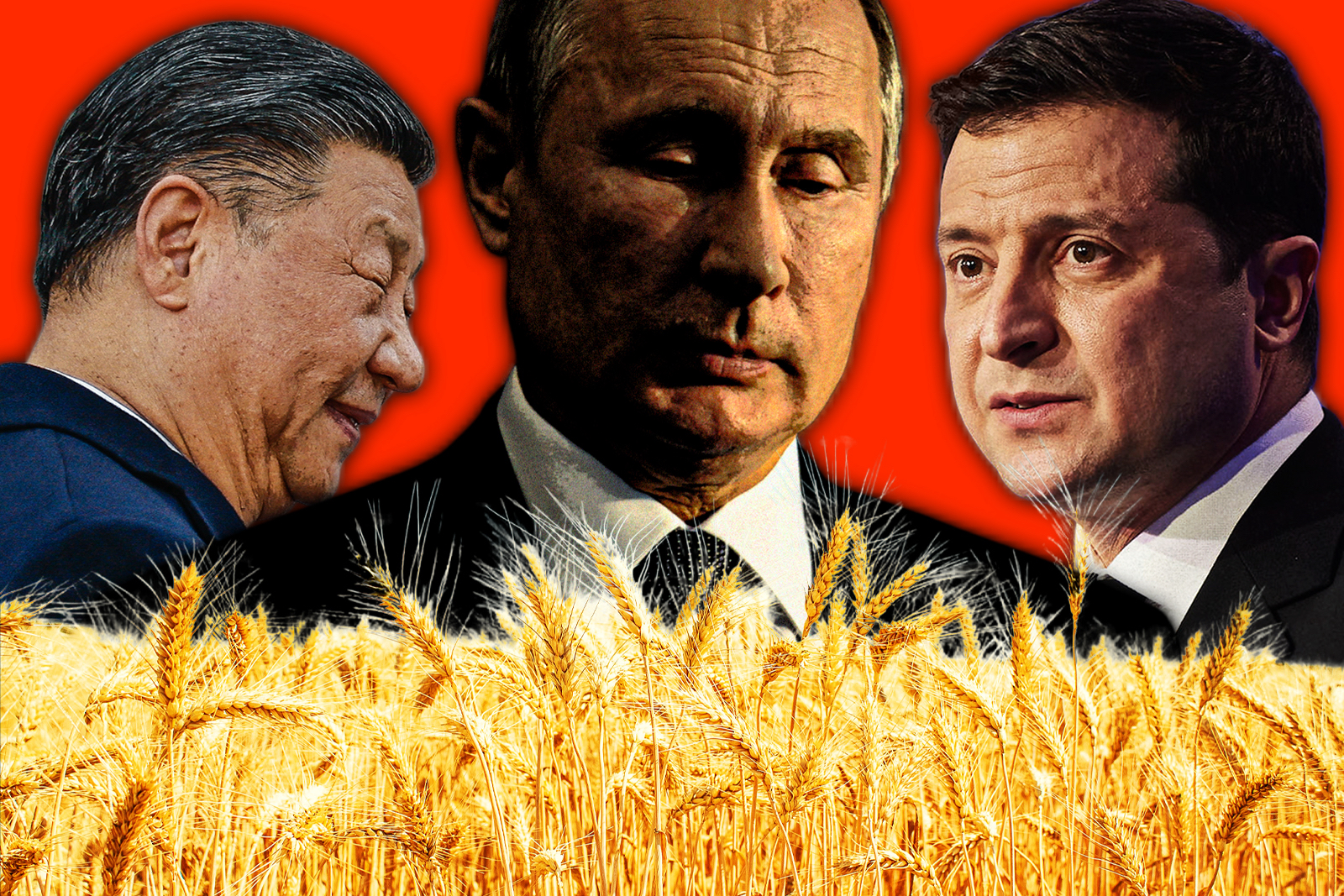
Does Ending the Ukraine War Hinge on Beijing?
Saudi Arabia kicked off a peace summit in Jeddah with over 40 countries in attendance this past weekend to find a solution to ending Russia’s war in Ukraine.
Ukrainian President Volodymyr Zelensky welcomed the wide range of countries represented in the talks, including developing countries hit hard by the surge in food prices triggered by the war, according to Reuters.
He emphasized the paramount significance of acting swiftly to implement the peace formula, as it directly impacts the lives of millions of people in Africa, Asia, and other regions. The fate of those grappling with food insecurity hinges on how effectively the world embraces this approach.
Last month, Russia made the global food crisis that much worse by pulling out of the United Nations-brokered grain deal, which facilitated the transport of Ukrainian grain via the Black Sea to hunger-stricken areas worldwide.
Zelensky expressed his optimism that this initiative would pave the way for a “peace summit” in the upcoming autumn and said he hoped world leaders would endorse the principles of the settlement, built upon Kyiv’s 10-point formula.
Zelensky first announced his peace formula at the November G20 summit. Among the proposals: focusing on restoring safety around the Zaporizhzhia Nuclear Power Plant; protecting and ensuring Ukraine’s grain exports to the world’s poorest nations; and, restoring Ukraine’s territorial integrity, which Zelensky said is “not up to negotiations.”
The plan may seem feasible but, as Reuters reported, Ukrainian, Russian, and international officials have confirmed that with the war raging, there is no prospect of direct talks between Kyiv and Moscow at present. A European Union official said the Saudis would present a detailed plan for further talks, with working groups to discuss issues such as global food security, nuclear safety, and prisoner releases.
China’s attendance at the summit has generated murmurs as its government seems to be playing both sides. Since China’s top leader Xi Jinping and Russian President Vladimir Putin proclaimed an unrestricted partnership in February 2022, Beijing and Moscow have consistently emphasized their robust relations.
Nonetheless, China’s embassy in Moscow raised concerns on Friday regarding the treatment of five Chinese citizens who were denied entry into Russia. The embassy criticized the incident, considering it to be at odds with the overall amicable relationship shared between the two countries.
In addition, in the aftermath of Russia’s withdrawal from the crucial grain deal, Western countries have turned their attention to China, seeking its assistance in mitigating the consequences of this decision. China has emerged as one of Moscow’s few friends, and its role in the Black Sea Grain Initiative has been significant.
As per data provided by the UN, Chinese ports have played a pivotal role in facilitating trade, with a substantial eight million metric tons of Ukrainian agricultural products entering. This volume represents the lion’s share of the goods traded through the initiative. The reliance on Chinese ports for such a significant proportion of Ukrainian agricultural exports underscores the importance of China as a key player in the region’s economic dynamics.
Washington and Brussel’s interest in seeking China’s involvement in resolving the situation stems from the potential for China to play a critical role in maintaining stability and ensuring the smooth functioning of agricultural trade in the region. As China’s influence in the global economy continues to grow, its partnership with Russia in the Black Sea Grain Initiative further consolidates its position as a significant player in international trade and diplomacy.
However, the situation also presents complexities and challenges for China as it navigates its strategic relationship with both Russia and Ukraine. On one hand, China must maintain its close ties with Moscow, which are crucial for various political, economic, and strategic reasons. On the other hand, China’s continued involvement in the Black Sea Grain Initiative could potentially draw it into the ongoing tensions between Russia and Ukraine and put it in a delicate diplomatic position with other Western countries.
At the same time, Russia and China jointly held provocative military exercises just off the coast of Alaska, angering Washington who expressed concern that the two superpowers were cooperating against the U.S. in such a blatant manner.
Considering these developments, the international community will closely observe China’s response and actions concerning the agriculture deal’s aftermath. As geopolitical dynamics continue to evolve, it remains to be seen how China’s role in the peace talks as well as the Black Sea Grain Initiative will shape regional dynamics and impact the broader global agricultural trade landscape.
Given China’s close partnership with Russia, it is far less likely to broker a deal between the two sides, but it could heavily influence Saudi-led peace talks and help bring about a final resolution to Russia’s war in Ukraine once and for all.
